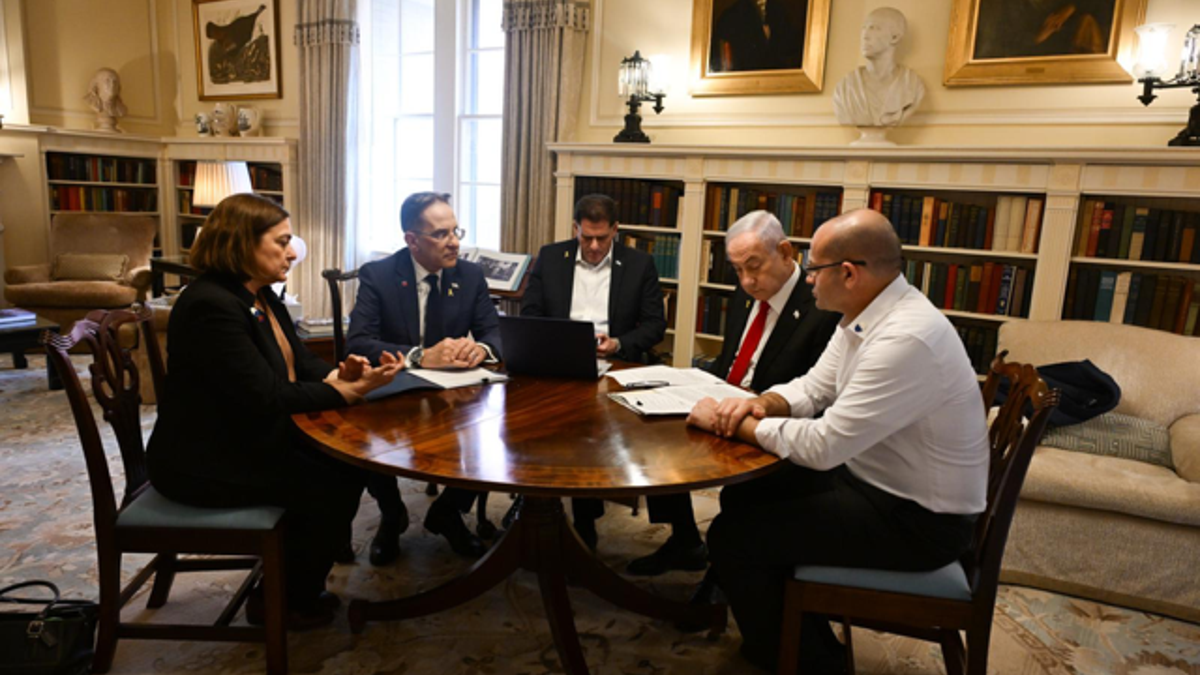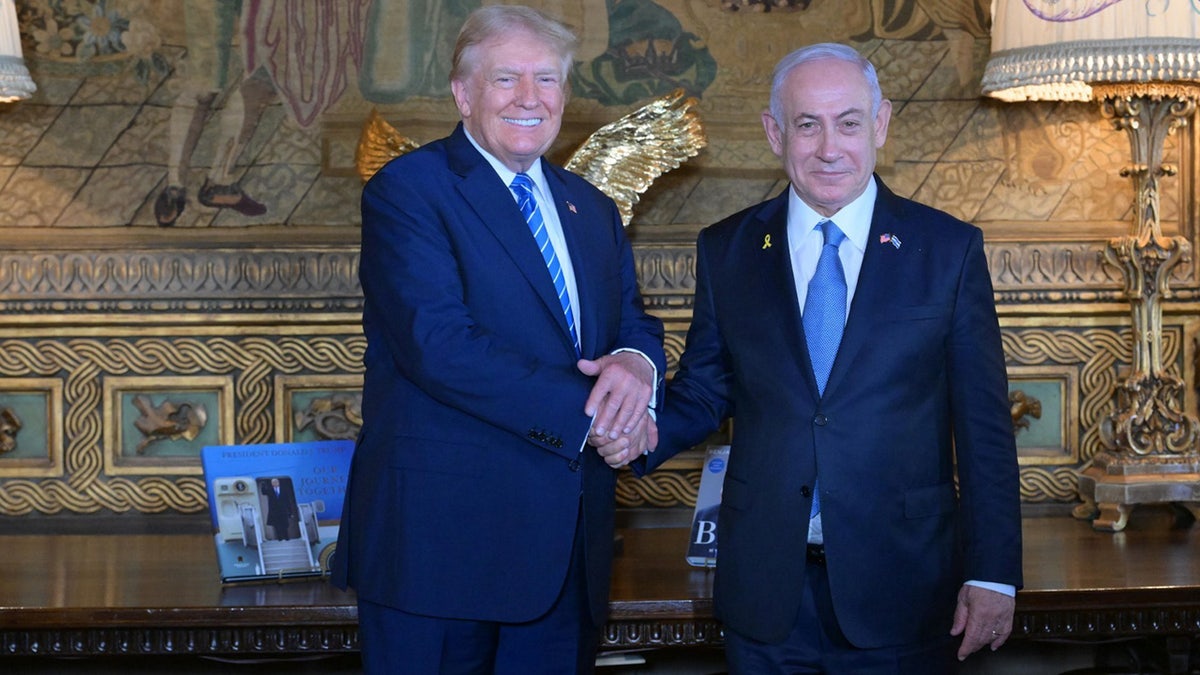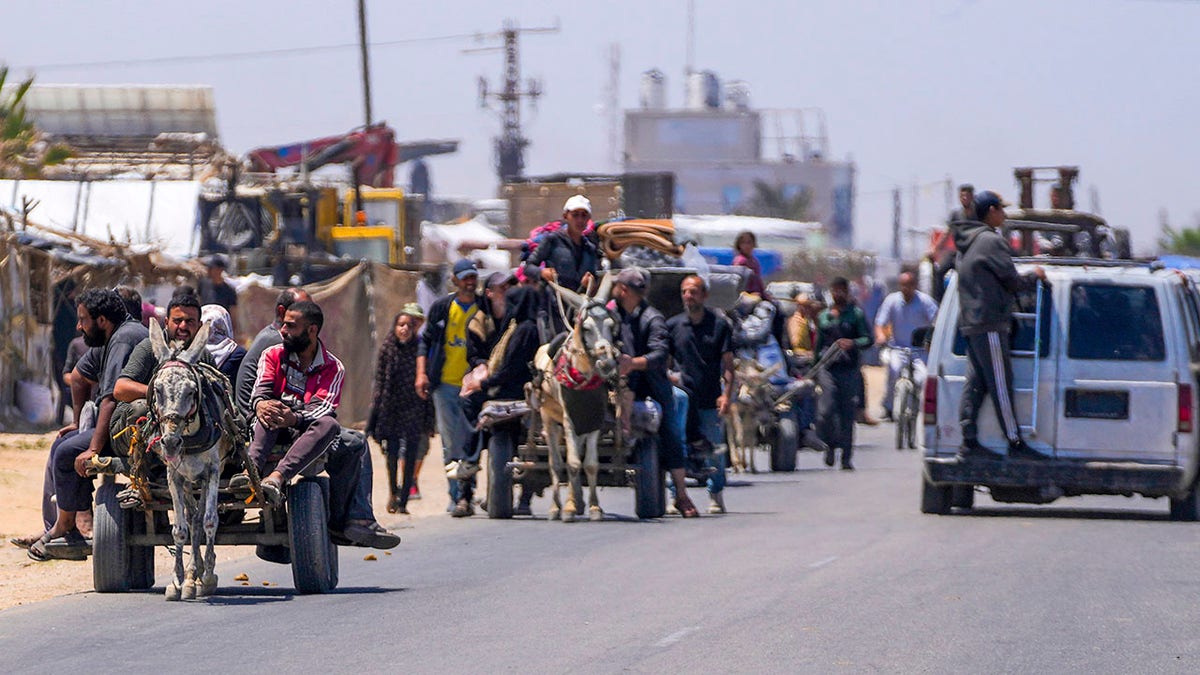Israeli Prime Minister Benjamin Netanyahu's meeting with President Donald Trump signifies a revitalized partnership between the two nations. This visit, the first by a foreign leader during Trump's second term, underscores the importance of the U.S.-Israel relationship. Key topics on the agenda include fortifying the alliance, addressing regional security concerns, and seeking assurances regarding Iran and the ongoing conflict with Hamas, as confirmed by current and former Israeli officials.
Israeli Ambassador to the United States Yechiel Leiter emphasized the significance of this meeting in fostering close cooperation and friendship between the two governments. He highlighted the visit as a catalyst for collaborative efforts to enhance security and prosperity in both countries and the broader Middle East.

Ambassador Leiter previously indicated that Iran's nuclear capabilities would be a central point of discussion. He stressed the unacceptability of allowing Tehran to retain its nuclear potential, which could be rapidly weaponized.
Netanyahu's visit comes after a perceived delay in invitation from the previous administration, underscoring the shift in political dynamics. Netanyahu himself acknowledged the significance of Trump prioritizing this meeting as a testament to the robust American-Israeli alliance. He outlined key discussion points, including the conflict with Hamas, the release of hostages, and the threat posed by Iran.
Former Israeli Ambassador to the U.S. Michael Oren suggested that Trump might urge Netanyahu to proceed with the next phase of the truce agreement with Hamas, a move that presents challenges for Israel due to Hamas's continued control in Gaza.

While Trump has expressed skepticism about the ceasefire's durability, his envoy's recent visit to Israel suggests a push for full implementation. Netanyahu has stated that Trump is prepared to support renewed conflict if negotiations with Hamas fail.
Oren also anticipated discussions on the Palestinian issue, potentially revisiting the Trump peace plan and exploring normalization between Israel and Saudi Arabia. However, he noted potential friction regarding Palestinian statehood, a topic some in Netanyahu's coalition oppose.

Trump's previous withdrawal from the Iran nuclear deal and the subsequent reversal of his policies by the Biden administration create a backdrop for discussions on Iran's nuclear program. Former Israeli Deputy Foreign Minister Danny Ayalon believes Trump may be prepared to reinstate sanctions and issue a credible military threat to bring Iran back to negotiations. While a diplomatic solution is preferred, Ayalon acknowledged potential differences of opinion between Trump and Netanyahu on this issue.

Other potential topics include Israeli sovereignty over parts of the West Bank, expanding defense cooperation, and developing a U.S. missile defense system similar to Iron Dome. Brig. Gen. (Res.) Hannan Gefen highlighted Trump's broader perspective on Gaza, involving regional players like Saudi Arabia, Qatar, and Egypt. Potential disagreements may arise concerning Syria, Lebanon, and Yemen.

Despite potential differences, Likud lawmaker Boaz Bismuth emphasized that Netanyahu will not compromise on Israel's national security. He expressed confidence in the strong relationship between Trump and Israel.
Comments(0)
Top Comments